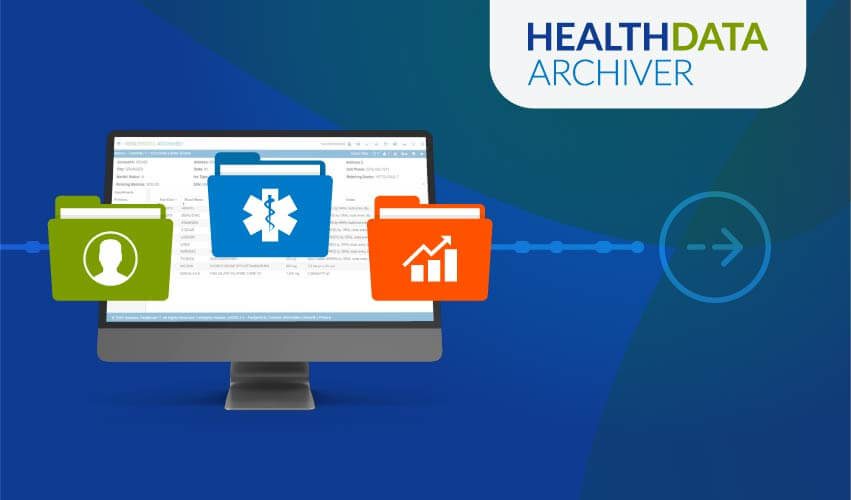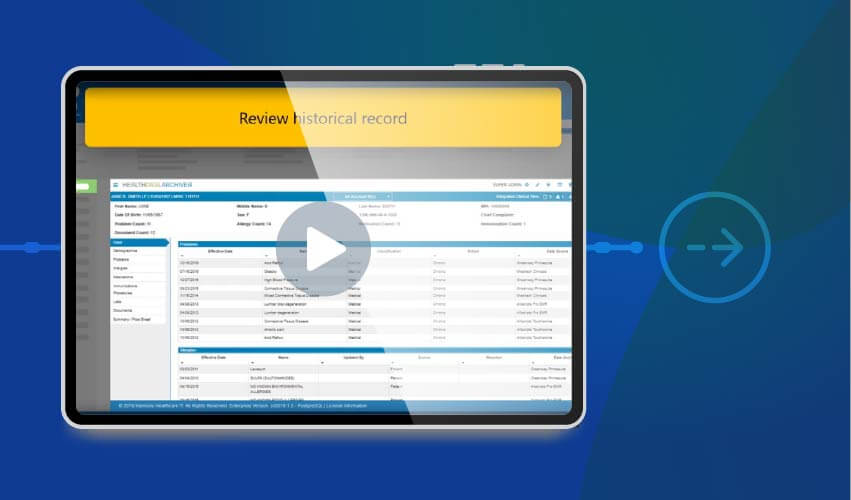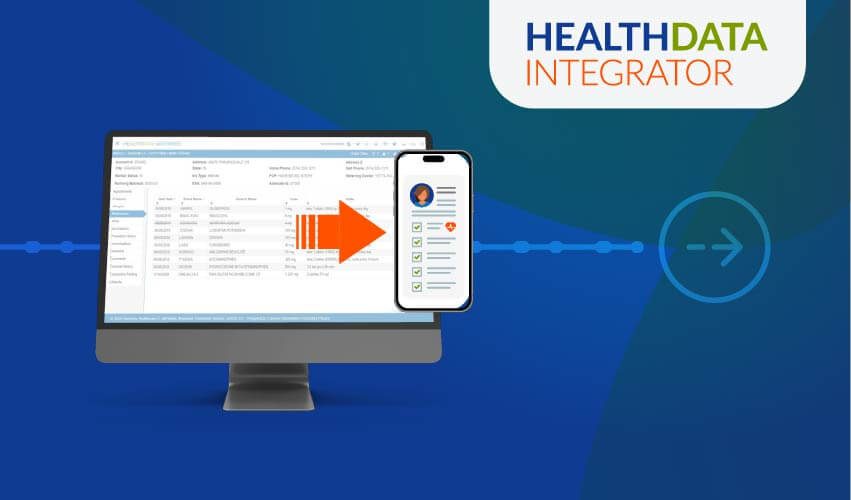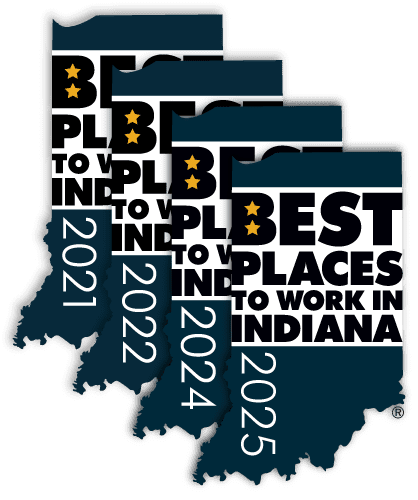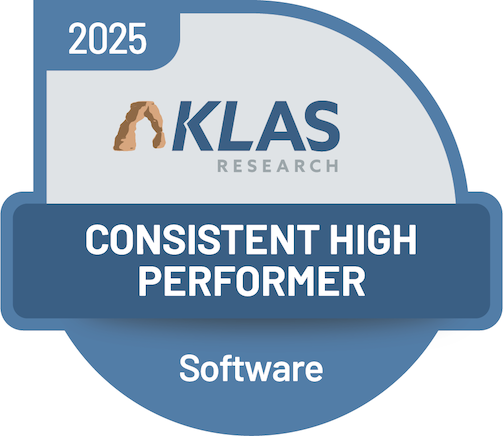Patient Identity Management Services
Ensure accuracy in access to legacy records.
An accurate patient identity management system, throughout an enterprise, supports smooth operations and an enhanced patient experience. Consolidating legacy data from disparate systems across a healthcare delivery organization into a central active archive, like HealthData Archiver®, is a foundational step to support patient identity management that aligns with the active electronic health record (EHR). Harmony Healthcare IT offers three levels of patient identity management services, each with varying matching precision—Single Sign-On, MPI Synchronization, and MPI Management.
- 86% Clinicians have witnessed a medical error caused by patient misidentification
- 800k Average records with a duplicate record creation rate of 8-12% per year
- 33% Denied claims from patient misidentification, costing hospitals $1.5M on average in 2017
- 45% Large hospitals reported difficulty accurately identifying patients through EHR
Want accurate legacy records?
Harmony Healthcare IT, an award-winning data management firm, can improve your MPI strategy.
The Need for Accurate Records
As the 21st Century Cures Act mandates electronically sharing health records with consumers within a period of time, there is a more aggressive push to ensure accuracy in linking accounts between the active EHR and HealthData Archiver®. Deploying patient identity management healthcare solutions with HealthData Archiver® increases the odds of a precise match since many legacy applications often lack a Master Patient Index (MPI) or contain duplicate accounts.
The Three Levels
Harmony Healthcare IT offers three levels of patient digital records identity management technology based on the effectiveness of your organization’s existing MPI strategy or its desire to improve it or implement one.
Good: Single Sign-On (SSO)
Implement SSO from your EHR to HealthData Archiver® to enable fuzzy logic matching based on a combination of First Name, Last Name, Social Security Number, and/or Date of Birth.
Ideal for organizations that:
- Do not have an existing MPI strategy in place and do not have plans or ability to implement one.
- Want to improve the HealthData Archiver® end user experience.
This option is available but not recommended as a suitable solution for interoperability due to lower precision in passing patient context for SSO.
Better: MPI Synchronization
Complement SSO implementation from your EHR to HealthData Archiver® with an MPI backload that will more precisely link historical patient records to an MPI. This linkage both greatly increases patient matching accuracy and establishes a foundation for interoperability and future application programming interface (API) integration projects. With the foundation of an MPI backload in HealthData Archiver®, a form of HL7 may then be leveraged to link and unlink records in a way that will keep historical records in HealthData Archiver® synchronized with active records in your EHR.
Ideal for organizations that:
- Have an existing MPI strategy in place and are satisfied with the accuracy.
- Desire high precision SSO patient context matching in conjunction with current MPI tool/vendor.
- Are focused on compliance with the 21st Century Cure’s Act and future interoperability integration opportunities.
Best: MPI Management
Implement or upgrade an MPI strategy by adopting a third-party unique patient identifier that leverages referential data. Backload these identifiers into HealthData Archiver® to provide highest SSO precision in conjunction with the HL7 Interface to link and unlink records with your EHR. This linkage not only keeps the historical patient records in sync with your EHR but also bounces the demographic data against a broad reference data set. This referential match typically outperforms traditional EHR MPI matching solutions as it offers a higher accuracy rate.
Ideal for organizations that:
- Do not have an existing MPI strategy in place.
- Have an MPI in place but not satisfied with the accuracy thresholds in existing process.
- Are focused on compliance with the 21st Century Cure’s Act and future interoperability integration opportunities.
- Are experiencing M&A activity that demands a robust, long-term solution.
Pain points around patient matching:
- Duplicated records
- Errors & mistakes
- Lost staff time
- Increased costs
Benefits of a precise patient match:
- Improved record quality
- Minimized errors & fraud in patient records
- Enhanced data integration/exchange
- Decreased costs from operational efficiency
- Increased patient safety & care
- Less human intervention & quality assurance
Key Resources
FAQ
How can organizations create a framework for cross organizational patient identity management?
A solid master patient index (MPI) strategy is a must have for every healthcare provider. It identifies patients across separate clinical, financial, and administrative systems. The first step to patient matching across an organization starts with a commitment and a strategy to implement the necessary tools to ensure the right patient is matched to the right records, at every turn.
What does successful patient identity management look like?
Patient identity management centers on the end goal of seamless access to the comprehensive medical record. This means, users can easily connect to a patient’s current and historical medical record from the go-forward EHR without an additional log in. This Single Sign-On capability leverages direct ID and patient matching to keep the patient in-context and provides efficient and secure access to the archived record. There are a few options for patient identity management an organization can implement. They range from Good to Better to Best to tie archived medical records to active records in the current EHR.
Do you do this for clinics as well as hospitals?
It is critical that every provider organization that touches a medical record has the right record for the right patient. With patients visiting numerous clinics, specialists, and hospitals, it is vital that healthcare providers invest in the best possible solutions. Our team can assist physicians offices, clinics, hospitals and IDNs with patient identity management solutions to meet their needs.
What challenges does Patient Identity Management solve?
The patient matching challenges solved by a solid Patient Identity Management solution includes a reduction of:
- Duplicate records. With an average of 5-10% of duplicate records in most hospitals and some health systems reporting 20% duplication rates due to having multiple facilities or after mergers with other systems.
- Errors and mistakes. Reports on errors within patient records range from 20-30%.
- Lost staff time. With 45% of hospitals reporting difficulty in accurately identifying patients through an EHR, this affects staff productivity and satisfaction with up to 30 minutes of lost time per shift.
- Increased costs. The ever-increasing cost in staff, legal, billing and regulatory departments related to EHR documentation continues to rise. The expense of repeated medical care due to duplicate records is estimated at $1,950 per patient inpatient stat and causes $1.5 million in denied claims each year.
